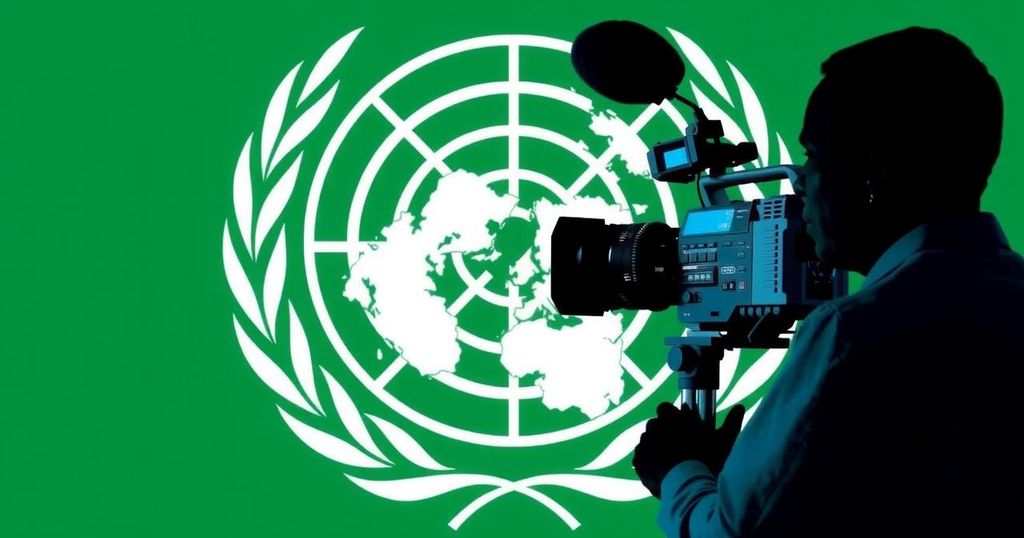UNESCO has pledged ongoing support to media managers in South Sudan, addressing the challenges they face through a two-day training session in Wau. The session focused on crucial areas such as countering hate speech and ethical reporting. Key figures from UNESCO and local government emphasized the importance of collaboration among media personnel to enhance reporting quality ahead of upcoming elections.
UNESCO has acknowledged the significant challenges that media managers encounter in South Sudan and has reaffirmed its commitment to support them. During a recent two-day training session in Wau, attended by media managers and editors from Western Bahr el-Ghazal, Warrap, Northern Bahr el-Ghazal, and Lakes states, Mr. Paul Night, representing the UNESCO Country Director, emphasized collaborative efforts to enhance the capabilities of journalists. “We are pleased to have you all here. We know the challenges that you face at your stations and we are trying our best with our partners, the Association for Media Development in South Sudan (AMDISS) and so many others to help you build your capacities,” Night stated. The training, which brought together thirty participants, focused on vital topics such as countering hate speech, gender-responsive journalism, conflict-sensitive reporting, fact-checking, and ethical journalism. Mr. Night pointed out the ongoing obstacles faced by community radio stations in South Sudan, particularly in terms of human resources and financial management. “We know that the community radio stations in South Sudan have challenges in terms of human resources and financial management. We know many people come in then go out looking for greener pastures and thus there is no sustainability,” he remarked. He encouraged participants to enhance their skills, especially with the upcoming elections in 2026, which necessitate high-quality reporting. Mary Ajith, the Chairperson of the Board of Directors for the South Sudan Broadcasting Corporation (SSBC), urged journalists to work together in combating hate speech. “For media management, countering hate speech and misinformation and disinformation, is something that you can do collaboratively, not in competition,” she emphasized. She highlighted the importance of media unity during the election process, asserting that media involvement is crucial. Samuel Nicola, the Information Minister of Western Bahr el-Ghazal State, reiterated the workshop’s goal of empowering journalists to effectively manage information while promoting ethical journalism and advocating for the rights of media personnel. “This workshop has been designed to strengthen your ability and capacity in managing information as well as promoting ethical journalism and advocating the rights of all media personnel, whether in the country or in Bahr el-Ghazal,” Minister Nicola declared. He also assured journalists of a collaborative effort, stating that there were no significant disputes between the journalists and the state in Wau. Overall, this initiative by UNESCO signifies a crucial step towards enhancing the media landscape in South Sudan, emphasizing training, collaboration, and ethical reporting in preparation for impending elections.
The significance of media development in South Sudan cannot be overstated, particularly in light of the challenges faced by journalists and media outlets. Given the country’s history of conflict and political unrest, the media plays a crucial role in promoting peace, transparency, and accountability. Training initiatives such as the recent workshop organized by UNESCO are vital in equipping journalists with the necessary skills to report accurately and responsibly, particularly as the nation approaches elections. Topics such as hate speech, misinformation, and ethical journalism are essential components in fostering a healthy media environment that supports democratic processes.
In conclusion, UNESCO’s commitment to supporting media managers in South Sudan through training and capacity building is essential in addressing the challenges posed by a turbulent media environment. By enhancing journalists’ skills and fostering collaboration, these efforts aim to promote ethical reporting and prepare the media landscape for crucial electoral processes ahead. The endorsement from state officials further underscores the importance of unity in media management and the shared responsibility among journalists to contribute positively to society.
Original Source: www.radiotamazuj.org






